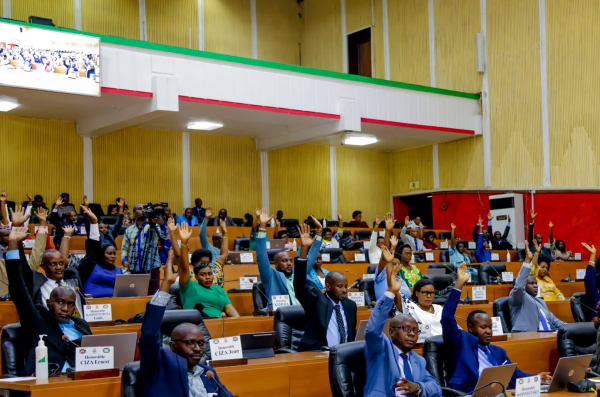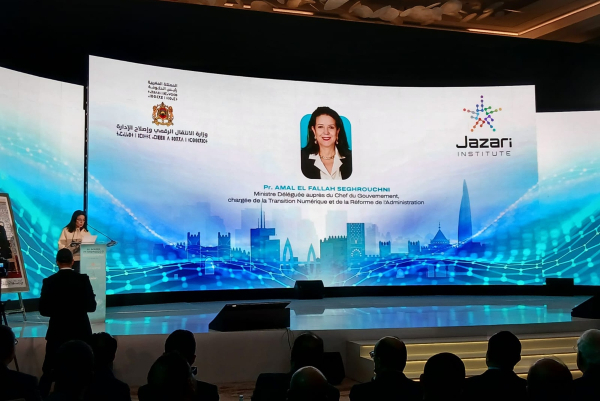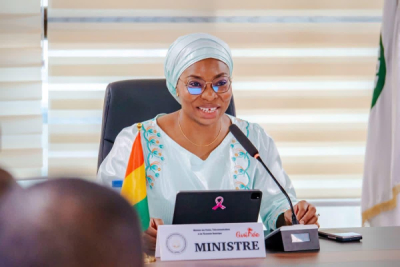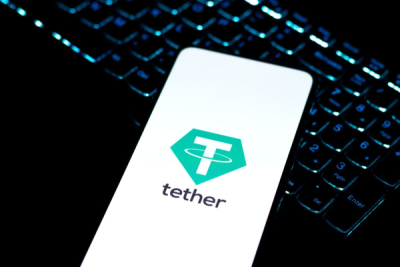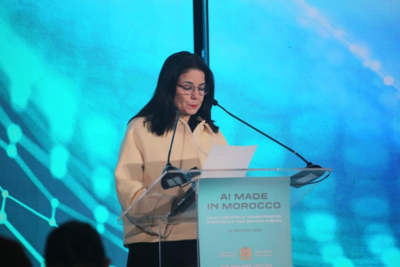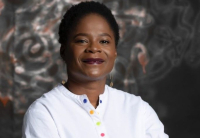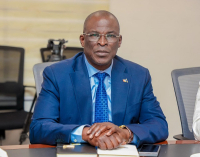
Tech (1152)
-
Burundi lawmakers unanimously approved a law regulating the collection, processing, and use of personal data amid accelerating digitalisation.
-
The legislation creates an independent data protection authority and introduces criminal penalties for violations.
-
The reform aligns Burundi with African and international digital governance standards and supports rollout of a biometric national ID.
Burundi adopted a dedicated legal framework for personal data protection as lawmakers moved to secure the country’s digital transformation and strengthen citizen trust.
Members of the National Assembly meeting in plenary session on Thursday, January 15, in Kigobe unanimously adopted a bill governing the collection, processing, and exploitation of personal data, as public administration and services expand digital systems.
Données personnelles : le Burundi verrouille l’ère numérique
— Irebe FM (@IrebeFM) January 15, 2026
Une Assemblée en mode responsabilité
L’Assemblée nationale s’est réunie ce 15 janvier 2026, au Palais des Congrès de Kigobe, sous la présidence de Daniel Gélase Ndabirabe, afin d’analyser et d’adopter le projet de loi… pic.twitter.com/NRu0IhKEsK
The Ministry of Interior, Community Development, and Public Security sponsored the law to close a legal gap created by the rapid spread of digital tools across government, the private sector, and daily life. Authorities expanded computerized systems, digitised the voter register, and advanced the rollout of a biometric national identity card, which together increased the production of sensitive data that existing Burundian law regulated weakly.
The law establishes core principles for privacy protection and emphasizes respect for fundamental rights and freedoms. It introduces multiple data protection regimes and creates an independent administrative authority responsible for enforcement, which aligns Burundi’s framework with international standards for digital governance.
On the operational front, the legislation introduces specific criminal penalties for violations, complementing existing cybercrime provisions. Lawmakers framed these measures as essential to restoring public confidence in digital systems, as parliamentary debates highlighted concerns over data security and misuse.
Beyond the national context, the reform fits within a broader continental push. The African Union has promoted legal harmonisation through the Malabo Convention on cybersecurity and personal data protection. About 39 African countries have already adopted dedicated data protection laws, while several others continue legislative reviews.
In Burundi, the new framework should also remove a key obstacle to deploying the biometric national identity card. Authorities said technical milestones already include installing registration software aligned with the new administrative boundaries. Officials currently test the system in about a dozen pilot communes before a phased nationwide rollout.
This article was initially published in French by Samira Njoya
Adapted in English by Ange Jason Quenum
- Morocco plans to generate 100 billion dirhams ($11 billion) in additional GDP from artificial intelligence by 2030.
- The government expects AI adoption to create 50,000 jobs and train 200,000 graduates in AI-related skills.
- Morocco will launch the Jazari Root AI network, including a 50-MW sovereign data center, to anchor its national ecosystem.
Morocco has placed artificial intelligence at the center of its economic transformation strategy. By 2030, the kingdom aims to generate 100 billion dirhams in additional GDP, equivalent to about $11 billion, through structured AI deployment. Official projections also link this strategy to the creation of 50,000 jobs and the training of 200,000 graduates in AI-related skills.
Amal El Fallah Seghrouchni, Minister Delegate for Digital Transition and Administrative Reform, unveiled these targets on Monday, January 12, in Rabat during a digital-focused conference. She stated that Morocco’s current GDP stands at around $170 billion and described artificial intelligence as a major growth lever, provided authorities integrate it within a structured, sovereign, and impact-driven framework.
These announcements form part of Morocco’s forthcoming national artificial intelligence strategy, whose roadmap authorities plan to release shortly. The strategy rests on several pillars, including skills development, the build-out of sovereign digital infrastructure, and the expansion of cloud and data-processing services capable of supporting advanced AI use cases nationwide.
To operationalize this ambition and structure the national ecosystem, Morocco also announced the launch of the Jazari Root network, which will serve as a central hub for the country’s artificial intelligence ecosystem. The project will include a 20-hectare campus and a 50-MW sovereign data center. Jazari Root aims to bring together researchers, startups, large companies, and public institutions around applied projects ranging from e-government and smart cities to agriculture, healthcare, and logistics.
By structuring investments and its ecosystem at an early stage, Morocco seeks to position itself as a credible artificial intelligence player at regional and African levels. The kingdom aims to capture part of the value that AI could generate in the global economy, which PwC estimates at nearly $15.7 trillion by 2030.
This article was initially published in French by Samira Njoya
Adapted in English by Ange Jason Quenum
- Guinea quadrupled backbone capacity to 200 Gbps and deployed nearly 12,000 km of fiber
- Digital reforms generated more than $26.9 million in budget savings in public administration
- Telecoms now account for 4.4% of GDP and attracted about $220 million in investment
In 2025, Guinea intensified initiatives under its digital transformation strategy. Authorities accelerated infrastructure deployment, strengthened state digitalization, and modernized telecom sector governance. The Minister of Posts, Telecommunications and Digital Economy, Rose Pola Pricemou, presented these developments during a sector review.
On infrastructure, Guinea quadrupled national backbone capacity to 200 Gbps from 50 Gbps. Authorities deployed nearly 12,000 kilometers of fiber optic cable to connect all administrative regions. The country also commissioned its first Tier 3–certified national data center, operationalized an Internet Exchange Point, and secured sovereign management of the .gn country-code domain, which strengthened network security and resilience.
Public administration digitalization also gained momentum. In 2025, authorities deployed 39 public service applications and fully digitized several key procedures, including passport issuance, through a unified digital portal. The TELEMO platform fully digitized public procurement, improving transparency and traceability. At the same time, the FUGAS unified civil service registry streamlined workforce management and generated budget savings exceeding 233 billion Guinean francs, or about $26.9 million.
Education and digital inclusion programs expanded in parallel. Authorities trained more than 10,000 people in digital skills. The Univ Connect project interconnected several universities and reached more than 80,000 students, lecturers, and researchers. In primary education, the GIGA program connected 585 schools to the internet, with authorities targeting 2,200 schools by 2026, or nearly 900,000 beneficiaries. Authorities also expanded regional digital hubs, with 20 additional centers under construction. The government invested more than $4 million to support tech entrepreneurship and stimulate local innovation.
These reforms delivered economic and strategic returns. The telecommunications sector now accounts for 4.4% of Guinea’s gross domestic product and attracted about $220 million in investment. At the same time, mobile internet costs fell by about 25%.
In 2026, authorities will prioritize extending connectivity to underserved areas, with more than 600 identified white zones. The government will also expand digital use in education and public services and strengthen cybersecurity and local data hosting. However, challenges remain, including universal access, infrastructure maintenance, and continuous skills training to support sustainable nationwide adoption.
This article was initially published in French by Samira Njoya
Adapted in English by Ange Jason Quenum
- Tether and the UN Office on Drugs and Crime launched a partnership to boost cybersecurity and public education on digital assets in Africa.
- The initiative includes youth cybersecurity training in Senegal and support for anti-trafficking organizations across several African countries.
- Interpol recently uncovered about $260 million in illicit crypto and fiat funds linked to financial crime in Africa.
Tether, a global cryptocurrency company, announced on Friday, January 9, 2026, a collaboration with the United Nations Office on Drugs and Crime to strengthen cybersecurity and public education around digital assets in Africa.
The initiative comes as cryptocurrency adoption accelerates across the continent, increasing user exposure to fraud and financial crime.
Tether and the United Nations Join Forces to Safeguard Africa’s Digital Economy
— Tether (@tether) January 9, 2026
Learn more: https://t.co/qKyZLH8j63
“Through this collaboration, we can advance digital inclusion, strengthen digital skills and youth employability, promote secure and transparent digital ecosystems, and harness innovation to prevent organized crime while fostering sustainable and inclusive economic growth,” said Sylvie Bertrand, UNODC Regional Representative for West and Central Africa.
The partnership includes several targeted projects.
In Senegal, the initiative focuses on youth cybersecurity education. The program provides multi-phase training that includes sessions conducted with the Plan B Foundation, which emerged from a collaboration between Tether and the city of Lugano. The initiative also offers coaching and mentoring to support the development of secure digital projects.
At the continental level, the program also supports civil society organizations that assist victims of human trafficking in countries including Nigeria, the Democratic Republic of Congo, Malawi, Ethiopia, and Uganda. At the same time, the initiative strengthens awareness of online financial risks.
The alliance takes shape amid rapid growth in digital asset use across Africa.
The continent now ranks as the world’s third-fastest-growing cryptocurrency market. However, this expansion also brings rising vulnerabilities.
A recent Interpol-coordinated operation uncovered nearly $260 million in cryptocurrencies and fiat currencies linked to illicit activities across multiple African countries.
Over the longer term, the partnership could strengthen trust in digital assets, support financial inclusion, and improve African states’ capacity to prevent financial crime.
The initiative also aims to support safer and more sustainable growth of Africa’s digital economy.
This article was initially published in French by Samira Njoya
Adapted in English by Ange Jason Quenum
-
Morocco plans to launch its “Maroc IA 2030” strategy to modernize public services, enhance digital interoperability, and strengthen economic competitiveness.
-
The government will establish Al‑Jazari Institutes, a national network of AI centers of excellence linking research, innovation, and regional economic actors.
-
The initiative complements Digital Morocco 2030, targeting 240,000 digital jobs and $10 billion contribution to GDP by 2030, while improving Morocco’s AI readiness ranking in MENA and globally.
Morocco prepares to unveil “Maroc IA 2030,” a strategic framework to structure the country’s AI ecosystem. The initiative aims to exploit artificial intelligence to modernize public services, improve digital system interoperability, and enhance national competitiveness, Minister Delegate for Digital Transition and Administrative Reform Amal El Fallah Seghrouchni said ahead of the “AI Made in Morocco” event in Rabat on January 12.
The roadmap focuses on five priorities: ensure technological independence, build trust in AI usage, develop national skills, support local innovation, and provide balanced coverage across the territory. Central to the plan is the creation of Al‑Jazari Institutes, a network of AI centers of excellence tasked with connecting academic research, technological innovation, and regional economic needs.
The plan builds on the Digital Morocco 2030 strategy, launched in September 2024, which places AI at the core of the country’s digital transformation. Authorities expect the strategy to generate 240,000 digital jobs by 2030 and contribute roughly $10 billion to GDP. Morocco improved 14 points in the AI government readiness index in 2025, ranking 87th globally and 8th in the Middle East and North Africa.
Concrete measures include the creation of a General Directorate for AI and Emerging Technologies to oversee public policy and the establishment of an Arab-African regional digital hub in partnership with the UNDP, aimed at fostering sustainable digital innovation.
Other African countries, including Egypt, Rwanda, and Kenya, have launched national AI strategies or strengthened institutional frameworks to accelerate AI adoption in the economy and public services. These efforts include centers of excellence, training programs, and regulatory frameworks to support responsible innovation.
If fully implemented, Maroc IA 2030 could enhance Morocco’s economic competitiveness, create skilled jobs, improve public service efficiency through intelligent systems, and strengthen the country’s position in the continental and global tech landscape.
This article was initially published in French by Samira Njoya
Adapted in English by Ange Jason Quenum
- Morocco digitizes 68 of 76 fish markets to improve tracking, governance, and data collection.
- Satellite monitoring and RFID tracking now cover all vessels in Moroccan waters to combat illegal fishing.
- Digital tools support scientific research, fisheries management, and market oversight amid declining catches and revenues.
Morocco faces a 15% decline in coastal and artisanal fish landings and a 4% drop in sector revenues through November 2025, according to the National Office of Fisheries.
The government sees digitalization as a tool to address these challenges.
During a parliamentary session on Monday, January 5, 2026, Secretary of State for Maritime Fisheries Zakia Driouich said that 68 of the country’s 76 first-sale fish markets now operate with digital systems.
The digital deployment allows the government to access precise data and strengthen oversight of commercial transactions.
Digital registration enables tracking of sales and production of actionable data, reducing opacity in exchanges.
The system also enhances control and audit capabilities, a key lever to improve governance and industry practices.
Digitalization extends beyond markets to fishing zones.
Driouich said all vessels operating in Moroccan waters are now monitored via satellite.
The government also uses radio-frequency identification (RFID) to trace authorized vessels, reinforcing controls and combating illegal fishing.
Officials apply these tools to scientific research, fisheries management, production methods, and commercialization.
The approach aims to improve data collection, planning, and sustainable resource management.
The initiatives build on Morocco’s long-standing strategy.
The Halieutis strategy, launched in 2009, initiated gradual modernization, including replacing paper documentation with electronic data processing for exports.
With the digitalization of first-sale markets and enhanced maritime monitoring, Morocco takes a new step toward a more traceable, regulated, and data-driven fisheries sector.
- Guinea launched Univ Connect to interconnect higher education institutions through a national fiber-optic network.
- Authorities connected 13 university sites, with 9 fully operational and 4 under activation, and plan to reach 17 institutions.
- The project targets nearly 80,000 students, researchers, and lecturers under the Simandou 2040 digital strategy.
Under the leadership of Rose Pola Pricemou, Minister of Posts, Telecommunications, and the Digital Economy, Guinea officially launched “Univ Connect” in late December 2025. The National Agency for Universal Telecommunications and Digital Services (ANSUTEN) leads the fiber-optic interconnection project, which aims to equip higher education institutions with faster, more stable, and more secure Internet infrastructure.
“This initiative marks a decisive step in supporting the digital transformation of Guinea’s education sector and will enable our institutions to deliver academic services that meet international standards,” ANSUTEN said.
On the operational front, authorities have already connected 13 sites to the national fiber network, according to information released at the launch. Nine sites now operate fully, while four sites remain under commissioning. In addition, authorities announced four more sites in the deployment phase. Ultimately, the program plans to connect and interconnect 17 higher education institutions to form a nationwide high-speed and secure academic network.
According to ANSUTEN, the project aligns with the government’s broader digital transformation drive under the Simandou 2040 sustainable socio-economic development program. Authorities aim to strengthen access to modern and reliable digital infrastructure for public and private universities across Guinea.
Beyond Internet access, the government seeks to create a full “academic network” that enables institutions to share resources and modernize services. Univ Connect will expand access to digital libraries, online learning platforms, and research tools while improving exchanges among nearly 80,000 teachers, researchers, and students.
The interconnection will also enable more intensive uses, including videoconferencing, hybrid courses, inter-university collaboration, access to scientific databases, and hosting of educational applications. Over the medium term, this digital backbone could support national research and innovation platforms.
However, sustainability remains a key challenge. The network’s long-term impact will depend on equipment maintenance, the resilience of internal campus networks, energy availability, and the implementation of cybersecurity standards. In other words, fiber infrastructure forms only the foundation, and durable governance will determine whether Guinea reaches its targeted international standards.
This article was initially published in French by Muriel EDJO
Adapted in English by Ange Jason Quenum
Just before the Orange EA SPORTS FC™ 26 Grand Finale kicked off at Casablanca’s Sacré-Cœur on December 19, Orange Middle East and Africa’s (OMEA) Brand and Sponsoring Director outlined the tournament’s evolution. She highlighted Orange’s commitment to African esports and its efforts to build a more inclusive and sustainable competitive ecosystem.
We Are Tech (WAT): This tournament used to be called the Orange eSport Experience, but now it’s Orange EA SPORTS FC™ 26. Aside from the name, what has changed and why?
Muriel Cissé: You’re right. The Orange eSport Experience had a great seven-year run but we felt it was time to take the tournament to the next level, which is why we partnered with EA SPORTS, a true powerhouse in the gaming industry. Beyond boosting our credibility and visibility, the partnership gives our players the opportunity to compete on the brand-new EA Sports FC 26 platform.
The new format now brings together 15 African countries, plus Réunion Island, which is joining the Orange Middle East and Africa (OMEA) circuit for the first time. It’s a major step forward. Our ambition is to show that Africa and its young talent belong on the global esports stage, and working with a world leader in gaming is a key part of that journey.
Where does this edition fit within Orange’s overall strategy for esports growth in Africa and the Middle East?
This is really a natural evolution of our work. Since 2016, our ambition in esports has gone hand in hand with our core business as an internet service provider. High-speed broadband is the backbone of online gaming and tournament streaming.
Beyond connectivity, our second major focus is inclusion. For a long time, local champions struggled to access the international circuit. From the outset, we aimed to promote esports, help structure local ecosystems, and make gaming accessible to everyone.
Through the Orange eSport Experience tournaments we’ve organized since 2018, we’ve given players a platform to compete and gain visibility. This has helped strengthen local communities and has even led to the creation of official esports federations in several countries. We remain committed to that original mission: promoting esports, identifying local talent, delivering high-quality experiences, and giving players a pathway to the global stage.
Inclusion also underpins our commitment to ethical and responsible gaming. We want esports to be open to all young people and increasingly gender-inclusive. For our finale in Casablanca, we are proud to welcome several female competitors, particularly from Cameroon and Morocco.
Looking back since the launch, what are the key figures and results of Orange’s commitment to esports?
Since 2018, we have hosted five pan-African editions, giving our athletes the opportunity to connect and level up. The results have been positive on several fronts. We’ve played a key role in structuring emerging ecosystems by partnering with local grassroots associations. Today, we’re seeing the rise of official national federations in countries like Cameroon, Senegal, and beyond. Orange has been a major driver in this move toward professionalization.
In terms of the numbers, gaming is now the world’s leading entertainment industry, surpassing both film and music. While data for Africa can be limited, we are seeing explosive growth across the continent. Statista projects over 420 million players by 2026, with a gamer penetration rate of 27% across Africa. As a major operator in the Middle East and Africa, Orange is committed to staying at the forefront of this momentum.
Given the wide geographic spread of this event, what resources are being deployed to ensure a top-tier experience for both players and spectators?
It starts with the cutting-edge technology we provide to young gamers, specifically the high-speed broadband, fiber, and 5G networks we are rolling out across our markets. These allow players to compete with minimal latency and make it possible to broadcast the tournaments. Beyond basic connectivity, we are leveraging our flagship "super-app," Max it, which has 22 millions active users across 16 markets, to promote esports.
Moving forward, Max it will become even more integrated with the gaming world. For instance, the Casablanca finale will be live-streamed directly on the app. We are also planning to launch a dedicated gaming "hub" within the app featuring exclusive content: match streams, special offers, and educational tutorials from world-renowned gamers to mentor our local talent. Our goal is to provide genuine added value to the community through the Max it platform.
With the Grand Finale taking place in Casablanca on December 19–20, what is at stake for the local champions representing their countries? What kind of regional impact are you expecting from this event?
For our champions, it’s first and foremost a matter of national pride. They really tap into that patriotic spirit, especially since the tournament focuses on virtual football (EA Sports FC 26), which aligns perfectly with our long-standing commitment to the sport. On a personal level, it’s an incredible opportunity for these players to sharpen their skills.
In terms of future prospects, every champion competing here automatically qualifies for an upcoming EA SPORTS FC™ Mobile tournament scheduled for mid-2026. That competition will expand beyond the OMEA region to include Orange’s European markets, giving our champions the chance to test their skills against players from around the world. On top of that, the overall winner of this tournament will receive a VIP trip to visit Real Madrid.
Visibility is another major factor. The event will be broadcast on Max it, YouTube, and FCM TV (the official EA Sports FC channel).
As for the regional impact, this broad coverage significantly grows our audience, and we hope it inspires a new generation of gamers. Hosting a tournament of this caliber on the eve of the TotalEnergies CAF Africa Cup of Nations Morocco 2026 highlights just how important esports is to Orange. We want to reinforce our commitment to supporting this ecosystem, helping establish regulations, and fostering the creation of national federations to propel our champions to the highest international levels.
Orange often speaks about a vision for "Responsible Esports" supported by the #ForGoodConnection program. What does this commitment look like in practice, and what initiatives are being held alongside the competition?
The #ForGoodConnection program allows us to raise awareness about cyberbullying and online safety. About two years ago, Orange launched “Safe Zones” within certain games in Europe. These are virtual spaces where players experiencing harassment can find immediate support and access contact information for advocacy groups.
Our responsible approach focuses on total inclusion, anti-bullying efforts, and the promotion of healthy screen time, which is a major priority in the esports world. #ForGoodConnection is a year-round commitment that we have fully integrated into this tournament.
One of our most concrete actions for this event was the intentional inclusion of female players. By bringing them into the competition, we are actively promoting gender diversity and making it clear that women have a central role in the future of esports.
What were some of the challenges you faced in organizing a tournament that spans 15 African countries and Réunion Island?
The institutional knowledge and experience we gained from previous editions of the Orange eSport Experience were invaluable. Our teams, based in London, Casablanca within the OMEA region, and across various local markets, have become seasoned experts in managing esports events. We also worked with a specialized agency. That collective effort and coordination allowed us to overcome challenges and bring this event to life.
The logistics were certainly demanding, particularly securing visas to bring all the players to Morocco. We were ultimately able to obtain approvals for nearly all participants. Organizing the event just ahead of the TotalEnergies CAF Africa Cup of Nations Morocco 2026 added another layer of complexity. However, by starting early and relying on our shared experience, we were
Beyond the professional players, how does Orange engage and unite local communities and casual fans in each country?
Our national qualifying phases are managed with a high level of professionalism, often held in venues that welcome live audiences to create a true "event" feel. These national finals are also frequently broadcast on local platforms, allowing us to reach a much wider audience of casual gamers and fans.
In several countries, we also sponsor public gaming centers where we host awareness programs and "brand activations" centered around casual matches. Our goal is to promote esports to the general public at a grassroots level, ensuring the ecosystem isn't just reserved for professionals, but is accessible to everyone.
Looking ahead, what is the future of Orange in the African esports scene?
Our biggest upcoming milestone is the international tournament slated for June/July 2026. This will be the next major chapter: an EA SPORTS FC™ Mobile tournament that will bring together not only Orange’s markets in Africa and the Middle East but also several of our European subsidiaries. This will create a truly cross-continental event, giving our African champions a global stage and the experience of competing at the highest level. The project is currently being finalized, but it perfectly embodies our ongoing commitment to inspiring youth, building esports awareness, and fueling innovation and passion across the continent.
Interview by Muriel Edjo
-
Chad accelerates “Tchad Connexion 2030” digital transformation strategy
-
Government, Huawei discuss expanding connectivity and digital public services
-
Low internet access highlights urgency, with just 13.2% online in 2025
Chad is moving to accelerate the rollout of its national digital strategy, “Tchad Connexion 2030,” as it seeks to expand connectivity and modernise public services.
The Minister of the Digital Economy and Digitalisation, Boukar Michel, held talks on Wednesday, December 24, with a Huawei North Africa delegation to discuss priorities for the country’s digital transformation. The delegation was led by Jason Ye, Huawei’s Vice President for North Africa.
Talks focused on expanding telecommunications infrastructure, widening access to connected services, and speeding up the digitalisation of public administration. With internet access still uneven across the country, these areas are central to the government’s digital policy goals.
Authorities are relying on partnerships with technology providers to narrow the digital divide, particularly in rural areas, and promote broader digital inclusion. Improving network coverage, deploying solutions tailored to local conditions, and strengthening technical skills were highlighted as central drivers of the transition.
For Huawei, which is involved in several digital infrastructure projects across Africa, the discussions fit within its broader approach of working with governments seeking to modernise their economies. Both sides explored the possibility of turning the talks into concrete projects aligned with the objectives of “Tchad Connexion 2030.”
The talks come against a backdrop of low connectivity. According to DataReportal, only 13.2% of Chad’s population had internet access at the start of 2025, with sharp disparities between urban areas and rural regions.
Samira Njoya
-
ONDA has launched a fully digital passenger journey at Casablanca airport for AFCON 2025
-
Self-service and biometric systems are deployed across Terminals 1 and 2
-
The airport handled a record 292,221 passengers between December 8 and 18
Morocco’s National Airports Office (ONDA) has announced the launch of a fully digitalized passenger journey at Mohammed V International Airport in Casablanca, alongside the Africa Cup of Nations (AFCON 2025). The initiative aims to ease passenger flows and significantly improve the travel experience during the tournament.
The system relies on advanced digital and biometric technologies. Ten Self Bag Drop kiosks have been installed on level 0 of Terminal 1 for Royal Air Maroc passengers, enabling fully automated check-in and baggage drop. In Terminal 2, twelve self-service kiosks allow passengers traveling without checked baggage to check in independently and proceed directly to boarding areas. Several airlines, including Air Arabia, Saudia, and EgyptAir, have already integrated their applications into the system, strengthening interoperability.
The rollout comes amid exceptionally high traffic linked to AFCON 2025, with thousands of supporters traveling through Casablanca. Between December 8 and 18, Mohammed V Airport handled a record 292,221 passengers, accounting for 33.7% of total air traffic in Morocco, confirming its role as the country’s main air hub during the competition.
These measures are part of ONDA’s “Décollage 2025” strategy unveiled last year, which targets the full digitalization of Morocco’s airports. The plan includes the creation of a Digital Factory, the deployment of biometric e-gates, and the rollout of the “SMART AIRPORT” system to monitor infrastructure in real time and anticipate operational disruptions. Together, these initiatives aim to modernize airport operations while strengthening passenger security.
Samira Njoya
More...
-
Authorities blocked a fraudulent transfer targeting a major oil company
-
The operation was part of a coordinated Interpol-led effort across Africa
-
Cyber threats are rising as digital exposure expands in Senegal
Senegalese authorities have foiled a cyber fraud attempt targeting a major oil company, preventing the diversion of $7.9 million, Interpol announced on December 22. The attackers had breached the company’s internal email systems and impersonated senior executives to initiate a fraudulent bank transfer.
According to Neal Jetton, Interpol’s director of cybercrime, the scale and sophistication of cyberattacks in Africa are accelerating, particularly against strategic sectors such as finance and energy. He praised the swift response of Senegal’s security services, which halted the transfer and froze the recipient bank accounts, averting a significant financial loss.
The intervention was carried out as part of a broader international coordination framework involving 19 African countries and deployed between late October and late November. The operation led to the arrest of more than 574 suspects, the seizure of about $3 million, and the removal of over 6,000 malicious links. In Ghana, authorities also made several arrests linked to ransomware attacks and identity theft schemes involving hundreds of victims and losses amounting to several hundred thousand dollars.
The case highlights the growing cyber threat facing Senegal, where digital risks are increasing alongside the expansion of connected technologies. Data from cybersecurity firm Kaspersky show that more than 10 million cyber threats were detected and blocked in 2024, pointing to a surge in intrusion attempts, exploitation of security vulnerabilities, and password theft targeting businesses, public institutions, and individuals. Some of these attacks relied on unsecured remote access points or software vulnerabilities, leaving sensitive systems particularly exposed.
The joint mobilization of African countries underscores the need for modern tools, cross-border coordination, and stronger local capabilities to combat cybercrime. It also highlights the importance of awareness, training, and investment in secure digital infrastructure to reduce fraud risks and support the continent’s digital transformation.
Samira Njoya
-
Government and Tamwilcom launch integrated startup support scheme
-
Program targets over 800 startups over three years
-
More than 700 million dirhams allocated to funding and support
Morocco’s Ministry of Digital Transition and Administrative Reform, in partnership with Tamwilcom, launched the “Startup Venture Building” (VB) program on December 17, in Rabat. The initiative introduces an integrated support and financing framework for innovative Moroccan startups.
Designed as a continuous support mechanism covering all stages of growth, the Startup Venture Building program aims to support more than 800 startups over a three-year period. The scheme combines strategic guidance, operational expertise, and tailored financing based on the maturity of each project. New tools include a living allowance, which provides a monthly income to experienced project leaders, and an incubation grant of up to 200,000 dirhams (about $22,000) to fund prototyping and market validation. The program also includes an interest-free loan of up to 500,000 dirhams to support commercial launch, as well as a seed loan ranging from 500,000 to 2 million dirhams to back acceleration and growth phases.
Startup creation in Morocco has gained momentum in recent years, but the transition from concept to market and the ability to scale remain weak points. The Startup Venture Building program brings together national and international support organizations, including CEED Morocco, Technopark, Flat6Labs, Open Startup International, Renew Capital LLC, and 500 Global. The objective is to provide structured support and consistent financing tools that improve project viability and competitiveness.
The initiative forms part of Morocco’s New Development Model and serves as a key implementation tool of the Digital Morocco 2030 strategy. This national roadmap seeks to promote value creation, industrial deployment of digital solutions, and the emergence of startups capable of reaching critical growth thresholds. With a total budget exceeding 700 million dirhams, the program aims to create a favorable environment for transforming ideas into scalable businesses and to strengthen Morocco’s position as a regional digital hub.
Authorities expect Startup Venture Building to contribute to the long-term structuring of Morocco’s entrepreneurial ecosystem. By improving access to finance, strengthening support mechanisms, and facilitating scale-up, the program aims to speed up the commercialization of innovative solutions, enhance the competitiveness of the national digital sector, and support the emergence of Moroccan startups with international reach.
Samira Njoya
-
ARPCE launches a digital platform for regulated administrative procedures
-
Users can submit and track requests remotely through a single portal
-
Initiative aligns with Algeria’s broader public sector digital shift
Algeria’s Postal and Electronic Communications Regulatory Authority (ARPCE) announced on December 21 that it has launched “e-Services,” a new digital platform designed to move its administrative services online.
Through this tool, the regulator aims to improve the efficiency of its procedures and strengthen interactions with operators in the postal and electronic communications sectors. The platform is accessible at https://esvc.arpce.dz.
The e-Services portal allows users to submit, track, and manage administrative requests online, without the need for physical visits. It brings together several procedures related to activities regulated by the ARPCE, with the goal of shortening processing times, improving file traceability, and increasing transparency. Designed as a digital one-stop shop, the platform also seeks to simplify exchanges between the authority and sector professionals, while ensuring the security of transmitted data.
The launch forms part of Algeria’s broader public administration digital transformation agenda, in which service digitization has become a key tool to improve governance. The postal and electronic communications sector includes a large number of regulated operators and generates a high volume of requests each year related to authorizations, declarations, and regulatory obligations, making online processing a strategic priority.
Over time, the e-Services platform is expected to improve the ARPCE’s administrative performance by simplifying access to regulatory services for operators and sector stakeholders. By shifting procedures online, the authority aims to reduce delays and administrative constraints, while strengthening transparency and responsiveness in a rapidly evolving digital environment.
Samira Njoya
-
Central bank launches work on a national instant payment platform
-
System aims to speed up transactions and expand financial inclusion
-
Project relies on open, interoperable technology
Guinea’s central bank, the Banque centrale de la République de Guinée (BCRG), launched work on the implementation of an instant payment system (SPI) on December 18. The digital infrastructure is designed to modernize payment methods and support broader financial inclusion in the country.
At the opening ceremony, BCRG First Vice Governor Mohamed Lamine Conté said the project stems from a consultative process that involved banks, electronic money institutions, microfinance institutions, and fintech companies. He said the SPI will allow users to send and receive funds in real time, at any time of day and without geographic constraints. The system is expected to address delays linked to traditional payment channels and support both merchant payments and personal transfers.
From a technical standpoint, the BCRG has opted for a public, open, and interoperable infrastructure based on Mojaloop technology. According to the central bank, this choice aims to limit technological dependence, encourage local innovation, and foster competition among financial service providers. Under this setup, real-time transfers will be possible between bank accounts, mobile wallets, and other payment instruments, laying the groundwork for a more integrated financial ecosystem.
The project takes shape as Guinea continues to face challenges in financial inclusion. BCRG data show that 23% of adults hold an account with a financial institution, up from 7% ten years ago. Despite this progress, the rate remains below the average for sub-Saharan Africa, even as digital financial services gain traction.
Mobile money services continue to expand in this context. Transactions through mobile money rose by 8.6%, from 43,077 billion Guinean francs ($4.9 million) in the previous quarter to 46,795 billion in the second quarter of 2024, reflecting growing reliance on digital solutions as alternatives to traditional banking.
At the regional level, the SPI aligns with a broader African trend toward instant payment systems, which now process tens of billions of transactions each year. Cross-border platforms such as the Pan-African Payment and Settlement System (PAPSS) highlight the importance of robust national infrastructures that can connect with regional mechanisms and support deeper economic integration.
While the operational timeline for Guinea’s SPI has yet to be specified, the expected benefits remain significant. By reducing cash usage and enabling secure, instant transactions, the system is expected to improve financial flows for households, businesses, and the public sector. Effective interoperability could also lower transaction costs and strengthen transparency and trust in the formal financial system.
Samira Njoya


